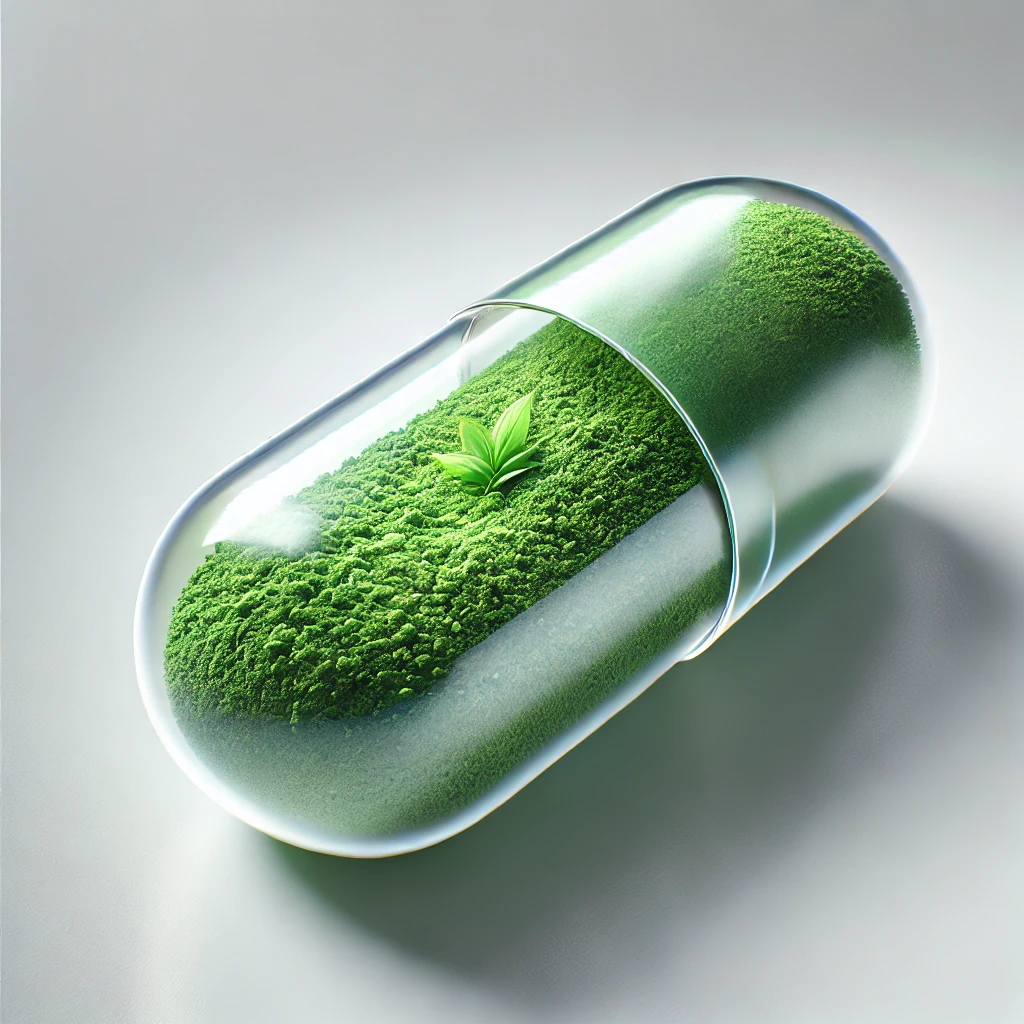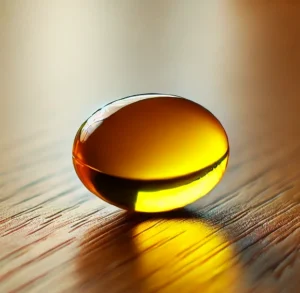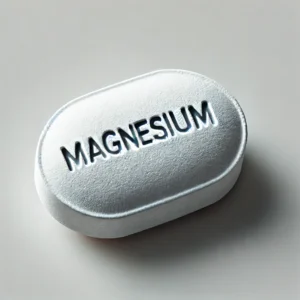
Unlock Your Zen:
6 Surprising Powers of
L-Theanine
- Read time for this section: ~ 2 mins.
- Improves Sleep Quality: L-theanine supplementation can improve sleep onset latency, total sleep time, and overall sleep quality, making it a natural option for better rest.
- Enhances Cognitive Function: When combined with caffeine, L-theanine enhances alertness, attention, and reaction time without the jittery side effects often associated with caffeine alone.
- Reduces Stress and Anxiety: L-theanine has been shown to reduce stress-related symptoms and anxiety, particularly in individuals exposed to acute stress or those with high anxiety levels.
- Supports Mental Health: L-theanine may serve as an adjunct therapy for mental health conditions, potentially enhancing the effectiveness of standard treatments for depression and anxiety.
- Green Tea and Matcha: Natural sources of L-theanine, also providing other beneficial compounds like antioxidants.
- Suntheanine®: A patented, pure form of L-theanine used in many clinical studies, ensuring high quality and consistency.
- Generic L-theanine: Non-branded forms of L-theanine that are widely available and typically more affordable. These are often found in various supplements and offer similar benefits to branded forms like Suntheanine but may vary in quality and purity depending on the manufacturer.
- For Improved Sleep Quality: 50 to 655 mg daily, with higher doses not necessarily providing additional benefits.
- For Stress and Anxiety Reduction: 200-400 mg daily, particularly in stressful conditions.
- For Cognitive Enhancement: 200-250 mg of L-theanine, often combined with 150-160 mg of caffeine for improved attention, memory, and alertness.
- As an Adjunct to Antidepressant Therapy: 200 mg daily, potentially enhancing the effects of standard treatments for depression.
- For General Relaxation and Mental Clarity: 100-200 mg daily, to promote a calm yet alert mental state, particularly when consumed as part of green tea.
supplement.
- Example:
$20 for 60 capsules. Taking 1 capsule daily will last ~ 2 months
(Assuming each capsule provides 200mg of L-theanine). - Suntheanine® will generally cost more than generic forms of L-theanine.
- Green Tea: The richest natural source of L-theanine, particularly high in matcha.
- Black Tea: Contains L-theanine, though in slightly lower amounts compared to green tea.
- White Tea: Another source of L-theanine, with a mild flavor and antioxidant properties.
- Oolong Tea: Provides a moderate amount of L-theanine, with a unique flavor profile.
- Mushrooms: Certain types of mushrooms, such as Boletus badius (Bay Bolete), contain L-theanine in smaller quantities.
- Herbal Teas: While not as high in L-theanine as true teas, some herbal blends may contain small amounts, particularly if they include green tea leaves.
- Consult with a Healthcare Provider: Before starting L-theanine supplementation, especially if you are pregnant, nursing, or have any pre-existing health conditions.
- Potential Interaction with Medications: L-theanine may interact with medications that affect neurotransmitter levels, such as those for anxiety or depression. Always consult with a healthcare provider before combining L-theanine with other treatments.
- Drowsiness: While L-theanine is generally calming, it may cause drowsiness in some individuals, especially at higher doses. Avoid operating heavy machinery or driving after taking L-theanine if you experience this side effect.
L-Theanine: The Calming Compound in Your Cup of Tea
What is L-theanine?
Ever wondered why a cup of green tea can make you feel both alert and relaxed at the same time? The secret might lie in a unique amino acid called L-theanine. Found primarily in tea leaves and some mushrooms, L-theanine has been capturing the attention of researchers and health enthusiasts alike for its potential benefits on mental health, cognition, and overall well-being.
In this post, we’ll dive into the science behind L-theanine and explore its various health benefits. Whether you’re a tea lover or someone looking for natural ways to improve your health, you’ll find something interesting here. So, grab a cup of tea (green, preferably!) and let’s explore the world of L-theanine together.
Health Benefits
1. Improved Sleep Quality
If you’ve been tossing and turning at night, L-theanine might be worth considering. A systematic review by Bulman et al. (2023) found that L-theanine supplementation could improve various aspects of sleep quality. The review, which analyzed 11 studies including both adults and children, reported significant improvements in:
- Sleep onset latency (how quickly you fall asleep)
- Total sleep time
- Sleep efficiency
- Overall sleep quality
- Daytime dysfunction
- Early awakenings
- Morning sleepiness
- Use of sleep medication
- Sleep disturbances
The effective dosages ranged from 50 to 655 mg, with higher doses not necessarily providing additional benefits. So if you’re looking for a natural sleep aid, L-theanine might be a gentler alternative to consider before reaching for stronger sleep medications.
2. Cognitive Enhancement
Who wouldn’t want a mental boost? Several studies have explored L-theanine’s potential cognitive benefits, often in combination with caffeine.
Camfield et al. (2014) reviewed the acute effects of L-theanine, caffeine, and epigallocatechin gallate (EGCG) on cognition and mood. They found that L-theanine combined with caffeine could:
- Increase alertness
- Improve attention switching accuracy
- Enhance visual and auditory attention accuracy
Interestingly, L-theanine alone showed some evidence of increasing calmness and contentment, suggesting it might help you feel more relaxed while staying mentally sharp.
A more recent study by Kahathuduwa et al. (2017) further supported these findings. Their research showed that L-theanine (200 mg), caffeine (160 mg), and their combination significantly improved recognition visual reaction time and increased N2-P300 event-related potential amplitudes, which are associated with improved attention and cognitive performance.
But what about long-term effects? Mancini et al. (2017) reviewed studies on green tea (which naturally contains L-theanine) and found that long-term intake was associated with a lower risk of cognitive impairment and better cognitive performance in older adults. While this doesn’t directly prove L-theanine’s effects, it suggests that compounds in green tea, including L-theanine, might contribute to cognitive health over time.
3. Stress and Anxiety Reduction
In our fast-paced world, stress and anxiety relief are in high demand. L-theanine shows promise in this area too.
Williams et al. (2020) conducted a systematic review of L-theanine’s effects on stress and anxiety. They found that doses between 200-400 mg/day may help reduce stress and anxiety in people exposed to stressful conditions. L-theanine was associated with:
- Reduced heart rate and salivary immunoglobulin A in response to acute stress
- Improved attention and reaction time in high-anxiety prone individuals
- Increased alpha brain wave activity, associated with a relaxed but alert mental state
These effects were more pronounced in individuals with high anxiety or those exposed to acute stress. However, it’s worth noting that longer-term studies in clinical populations showed mixed results, indicating that more research is needed to fully understand L-theanine’s long-term effects on anxiety disorders.
A study by Hidese et al. (2019) provides further support for L-theanine’s stress-reducing properties. In their randomized controlled trial, participants took 200 mg of L-theanine daily for 4 weeks. The results showed significant decreases in scores on the Self-rating Depression Scale, State-Trait Anxiety Inventory-trait, and Pittsburgh Sleep Quality Index, suggesting improvements in stress-related symptoms and sleep quality.
4. Potential Benefits for Mental Health Conditions
While L-theanine isn’t a replacement for prescribed medications, some studies have explored its potential as an adjunct therapy for mental health conditions.
Sarris et al. (2019) conducted a study on L-theanine for Generalized Anxiety Disorder (GAD). While they didn’t find significant benefits for anxiety symptoms, they did observe some interesting results:
- Participants reported greater self-reported sleep satisfaction with L-theanine
- In participants with non-clinical levels of insomnia symptoms, L-theanine showed improvement over placebo
The dosage used in this study ranged from 450-900 mg per day, higher than in some other studies.
For depression, Shamabadi et al. (2023) investigated L-theanine as an adjunct to standard antidepressant therapy. In their 6-week study, participants receiving 200 mg of L-theanine daily alongside sertraline showed:
- Greater reduction in depression scores
- Higher response and remission rates at week 6
These findings suggest that L-theanine might enhance the effects of antidepressant medications, although more research is needed to confirm these results.
5. Synergistic Effects with Caffeine
Coffee lovers, rejoice! L-theanine seems to play well with your favorite morning brew. Several studies have explored the combination of L-theanine and caffeine, finding some intriguing synergistic effects.
Anas Sohail et al. (2021) reviewed studies on the cognitive effects of caffeine and L-theanine. They found that the combination improved attention, reaction time, and cognitive performance more than either compound alone. Specifically:
- The combination decreased mind-wandering and improved inhibitory control in ADHD
- It improved performance under stress conditions compared to caffeine alone
This synergy might explain why many people find green tea (which naturally contains both L-theanine and caffeine) provides a smoother, more focused energy boost compared to coffee.
6. Potential Anticancer Properties
While it’s crucial not to overstate preliminary findings, some research has explored L-theanine’s potential anticancer properties. Shojaei-Zarghani et al. (2021) reviewed studies on theanine’s effects on cancer cells and found some interesting results:
- Most in vitro and ex vivo studies reported beneficial effects on cancer cell proliferation, apoptosis, metastasis, migration, and invasion
- Theanine appeared to inhibit several pathways associated with cancer progression
- It showed moderate apoptotic, antimetastatic, antimigration, and anti-invasion effects
However, it’s important to note that most of these studies were conducted in laboratory settings or animal models. Much more research is needed to determine if these effects translate to humans and what dosages might be effective.
Conclusion
L-theanine, the unique amino acid found primarily in tea leaves, shows promise across a range of health benefits. From improving sleep quality and enhancing cognition to reducing stress and potentially supporting mental health, L-theanine has captured the attention of researchers and health enthusiasts alike.
The science suggests that L-theanine might be particularly beneficial for:
- Improving various aspects of sleep quality
- Enhancing cognitive function, especially when combined with caffeine
- Reducing stress and anxiety, particularly in acute stressful situations
- Potentially supporting treatment for mental health conditions like depression
- Providing a smoother, more focused energy boost when combined with caffeine
As with any supplement, it’s crucial to consult with a healthcare professional before adding L-theanine to your regimen, especially if you’re taking medications or have existing health conditions.
In the meantime, perhaps the simplest way to incorporate L-theanine into your life is through a cup of green tea. Not only will you get a dose of L-theanine, but you’ll also benefit from the other healthful compounds found in tea. So here’s to your health – may it be as calming and invigorating as a perfect cup of green tea!
Effective Dose
If you’re considering L-theanine supplementation, you might be wondering about the right dose. Based on the studies we’ve looked at, here are what they have used:
- 50 to 655 mg daily for improving sleep quality and stress-related symptoms (Bulman et al., 2023; Hidese et al., 2019)
- 200-400 mg daily for reducing stress and anxiety, particularly in stressful conditions (Williams et al., 2020)
- 200-250 mg of L-theanine, often combined with 150-160 mg of caffeine, for cognitive enhancement, including improved attention, memory, and alertness (Kahathuduwa et al., 2017; Anas Sohail et al., 2021; Mancini et al., 2017)
- 200 mg daily as an adjunct to antidepressant therapy (Shamabadi et al., 2023)
Considerations
When purchasing theanine supplements, several factors deserve attention. First, ensure you’re buying L-theanine, not D-theanine, as L-theanine is the form found in tea and studied for health benefits. Look for products from reputable manufacturers that undergo third-party testing for purity and potency. Some brands use Suntheanine®, a patented pure form of L-theanine that’s been used in many clinical studies. Check the dosage per serving – most studies use doses between 100-400 mg. Consider the form (capsules, tablets, or powder) based on your preference and ease of use.
Some products combine L-theanine with other ingredients like caffeine; decide if you want a pure supplement or a combination. Lastly, consult with a healthcare professional before starting any new supplement regimen, especially if you have existing health conditions or are taking medications.
References
- Anas Sohail, A., Ortiz, F., Varghese, T., Fabara, S. P., Batth, A. S., Sandesara, D. P., Sabir, A., Khurana, M., Datta, S., & Patel, U. K. (n.d.). The Cognitive-Enhancing Outcomes of Caffeine and L-theanine: A Systematic Review. Cureus, 13(12), e20828. https://doi.org/10.7759/cureus.20828
- Bulman, A., D’Cunha, N., Marx, W., Turner, M., McKune, A., & Naumovski, N. (2023). The Effects of L-Theanine Supplementation on Quality of Sleep: A Systematic Review. Proceedings, 91(1), Article 1. https://doi.org/10.3390/proceedings2023091032
- Camfield, D. A., Stough, C., Farrimond, J., & Scholey, A. B. (2014). Acute effects of tea constituents L-theanine, caffeine, and epigallocatechin gallate on cognitive function and mood: A systematic review and meta-analysis. Nutrition Reviews, 72(8), 507–522. https://doi.org/10.1111/nure.12120
- Hidese, S., Ogawa, S., Ota, M., Ishida, I., Yasukawa, Z., Ozeki, M., & Kunugi, H. (2019). Effects of L-Theanine Administration on Stress-Related Symptoms and Cognitive Functions in Healthy Adults: A Randomized Controlled Trial. Nutrients, 11(10), Article 10. https://doi.org/10.3390/nu11102362
- Kahathuduwa, C. N., Dassanayake, T. L., Amarakoon, A. M. T., & Weerasinghe, V. S. (2017). Acute effects of theanine, caffeine and theanine–caffeine combination on attention. Nutritional Neuroscience, 20(6), 369–377. https://doi.org/10.1080/1028415X.2016.1144845
- Mancini, E., Beglinger, C., Drewe, J., Zanchi, D., Lang, U. E., & Borgwardt, S. (2017). Green tea effects on cognition, mood and human brain function: A systematic review. Phytomedicine, 34, 26–37. https://doi.org/10.1016/j.phymed.2017.07.008
- Sarris, J., Byrne, G. J., Cribb, L., Oliver, G., Murphy, J., Macdonald, P., Nazareth, S., Karamacoska, D., Galea, S., Short, A., Ee, C., Birling, Y., Menon, R., & Ng, C. H. (2019). L-theanine in the adjunctive treatment of generalized anxiety disorder: A double-blind, randomised, placebo-controlled trial. Journal of Psychiatric Research, 110, 31–37. https://doi.org/10.1016/j.jpsychires.2018.12.014
- Shamabadi, A., Kafi, F., Arab Bafrani, M., Asadigandomani, H., A. Basti, F., & Akhondzadeh, S. (2023). l-theanine adjunct to sertraline for major depressive disorder: A randomized, double-blind, placebo-controlled clinical trial. Journal of Affective Disorders, 333, 38–43. https://doi.org/10.1016/j.jad.2023.04.029
- Shojaei-Zarghani, S., Rafraf, M., & Yari-Khosroushahi, A. (2021). Theanine and cancer: A systematic review of the literature. Phytotherapy Research, 35(9), 4782–4794. https://doi.org/10.1002/ptr.7110
- Williams, J. L., Everett, J. M., D’Cunha, N. M., Sergi, D., Georgousopoulou, E. N., Keegan, R. J., McKune, A. J., Mellor, D. D., Anstice, N., & Naumovski, N. (2020). The Effects of Green Tea Amino Acid L-Theanine Consumption on the Ability to Manage Stress and Anxiety Levels: A Systematic Review. Plant Foods for Human Nutrition, 75(1), 12–23. https://doi.org/10.1007/s11130-019-00771-5

